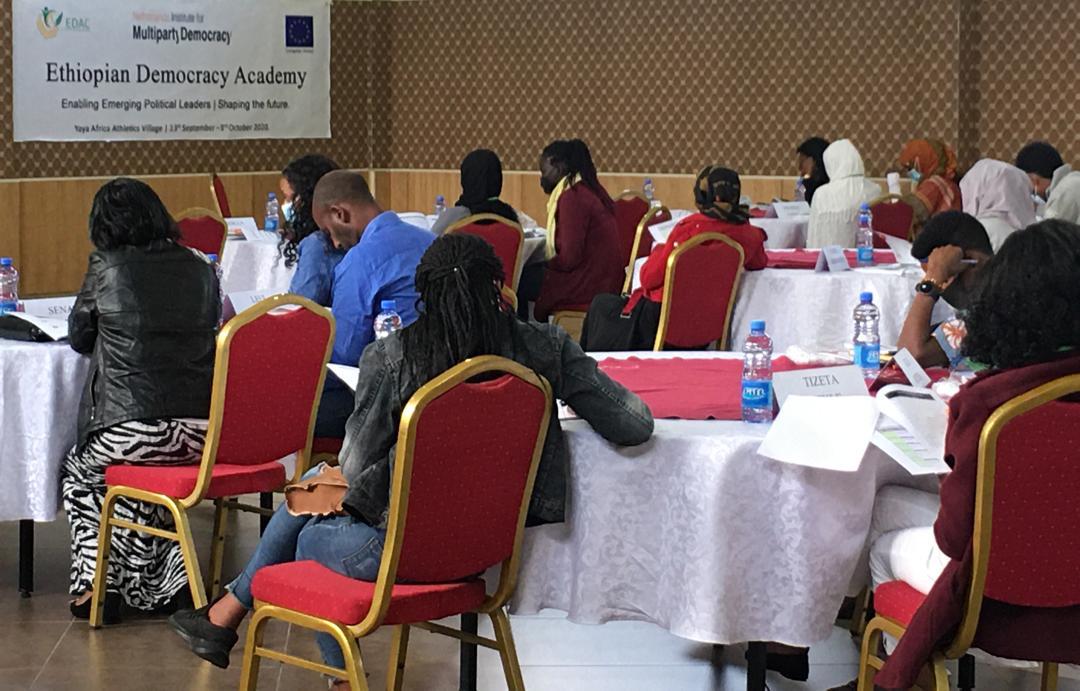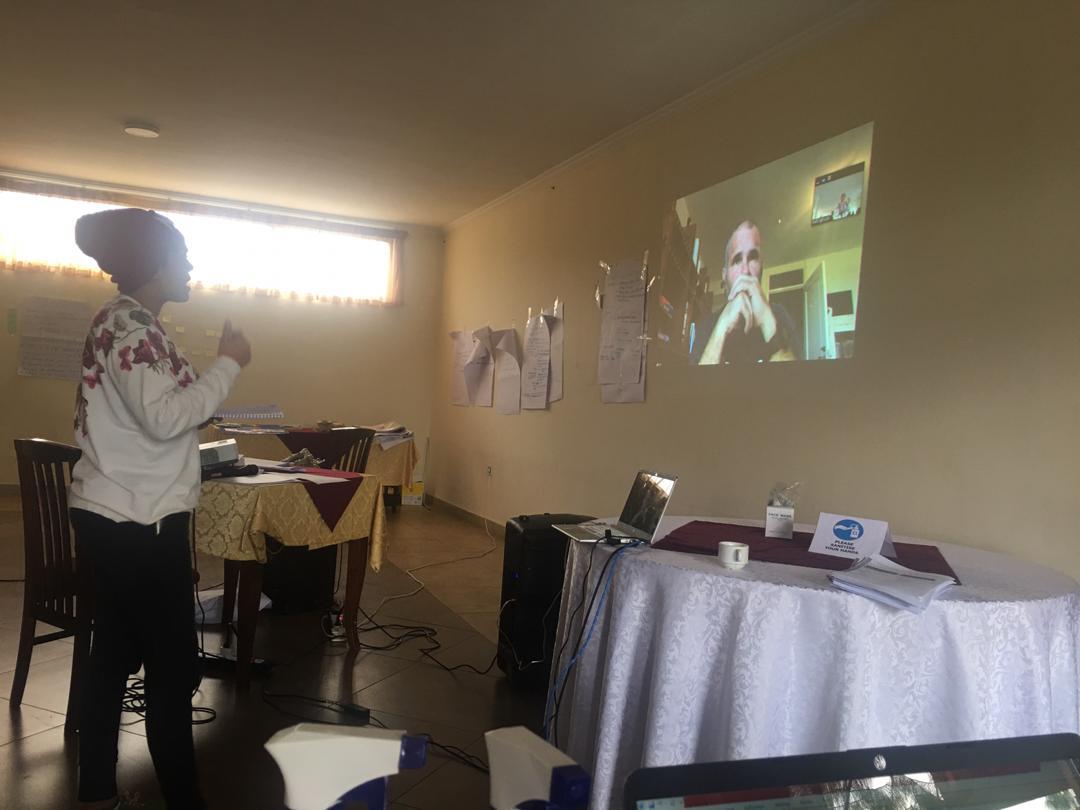Second Group of Politicians Completes the Ethiopian Democracy Academy

On 13 September, the second group of trainees were welcomed to the Ethiopian Democracy Academy (EDAC), with speeches from several key political party leaders. These key political party leaders all reiterated their support for this type of democratic culture and capacity building training at the national, regional, zonal, and even district level.
One female politician shared her inspiring story for the many female trainees in this training round. She talked about her experience as one of the few – and sometimes the only – female politicians working at the national level. In addition, three alumni from EDAC’s first training cohort, who graduated earlier this year, also shared their testimony of how impactful the training was for them. For example, EDAC Alumna Musa Adem (Chair of the Ethiopian Political Parties Joint Council), shared that while working with a variety of political parties with different ideologies, every day he is practicing the leadership and emotional intelligence techniques he learned at EDAC.
Immediately after the launch, the training kicked off on 14 September with a total of 35 trainees (27 women and 8 men), and continued for 20 days straight up to 3 October.
Making the jump to semi-online training sessions
The EDAC curriculum had the same structure and content as was used for March’s training sessions, with a combination of hard and soft skills development trainings. EDAC did however make the important addition of two semi-online trainings; conflict resolution and campaigning. In response to COVID-19, serious protection and prevention measures (e.g. large halls, outdoor group exercises and lunches, social distancing, and abundant availability of masks and sanitizers) were taken to prevent EDAC’s training from becoming a super spreading event.

Also similar to the last course at EDAC, trainings days were followed by film and discussion evenings. The motivational speakers invited this time were the well-known psychologist Dr. Mehret Debebe, who shared his expertise on ‘developing a growth mindset’, and Ms. Saba Gebremedhin, Director of the Network for Ethiopian Women Association (NEWA) who facilitated an experience sharing discussion on ‘women empowerment in Ethiopia’s politics’.
During the gender discussion led by Ms. Gebremedhin, it came to light that most of the female EDAC trainees require more support in the form of personal development skills training, long-term mentorship or coaching, and a platform for experience sharing and to galvanize women’s political participation. The discussion also highlighted the need for outreach towards political party leaders on how to actively include women and youth in their parties.
“EDAC encouraged me to continue my political career”
When NIMD Ethiopia asked the trainees about their expectations, they very clear. On the one hand, they wanted to develop their own leadership skills and political knowledge. On the other hand, they expect themselves and the other participants to develop a genuine commitment to democracy, whereby different ideas are heard and common ground is found through meaningful discussions on major political issues.
This was reflected upon again at the final day. In general, the trainees were greatly appreciative of the course. One female trainee perfectly explained the impact of EDAC on her political career:
“I was about to give up my political career because the conflicts and harassment towards me as a woman in politics became too much to handle. This training has given me hope and the courage to continue as I am not alone. Across Ethiopia there are young but strong women politicians working to change Ethiopia”.

Sustaining the change
Since this the last training financed through the EU-funded Ethiopian Political Parties Dialogue Support Programme, NIMD hopes to compile a range of sources to thoroughly evaluate the short- and long-term impact of EDAC on all 70 of its trainees. Also, NIMD aims to continue in following up with the 70 EDAC trainees, who are now called alumni, through a variety of networking activities, trainings, and by sharing resources (e.g. soft copy books, articles, and foreign affairs magazines). In addition, NIMD is looking forward to consult with different donor stakeholders in order to continue organizing the EDAC training courses and expand this programme with tailor-made alumni activities.
As Dr. Mehret Debebe argued: “To effectively push social change, two things are major factors for its success. First, a lot more EDAC trainings need to be organized to ignite a community of change makers in politics. Second, change within a single EDAC trainee requires the EDAC organizers to carefully follow up with him/her for 5 to 7 years after the training”.